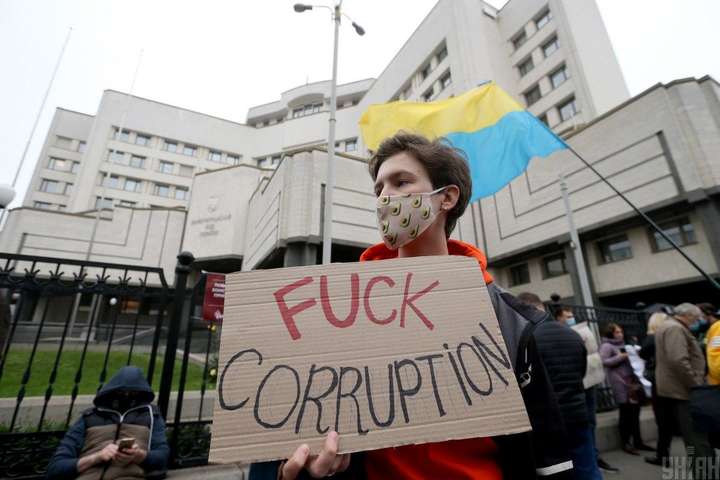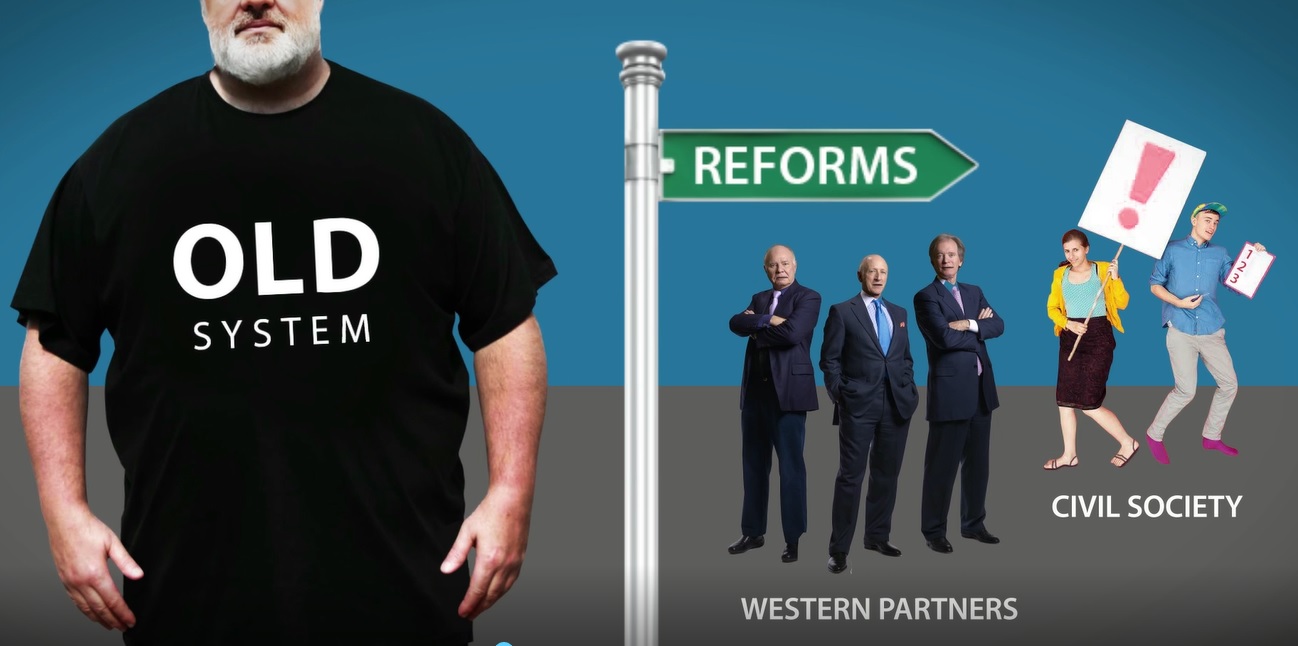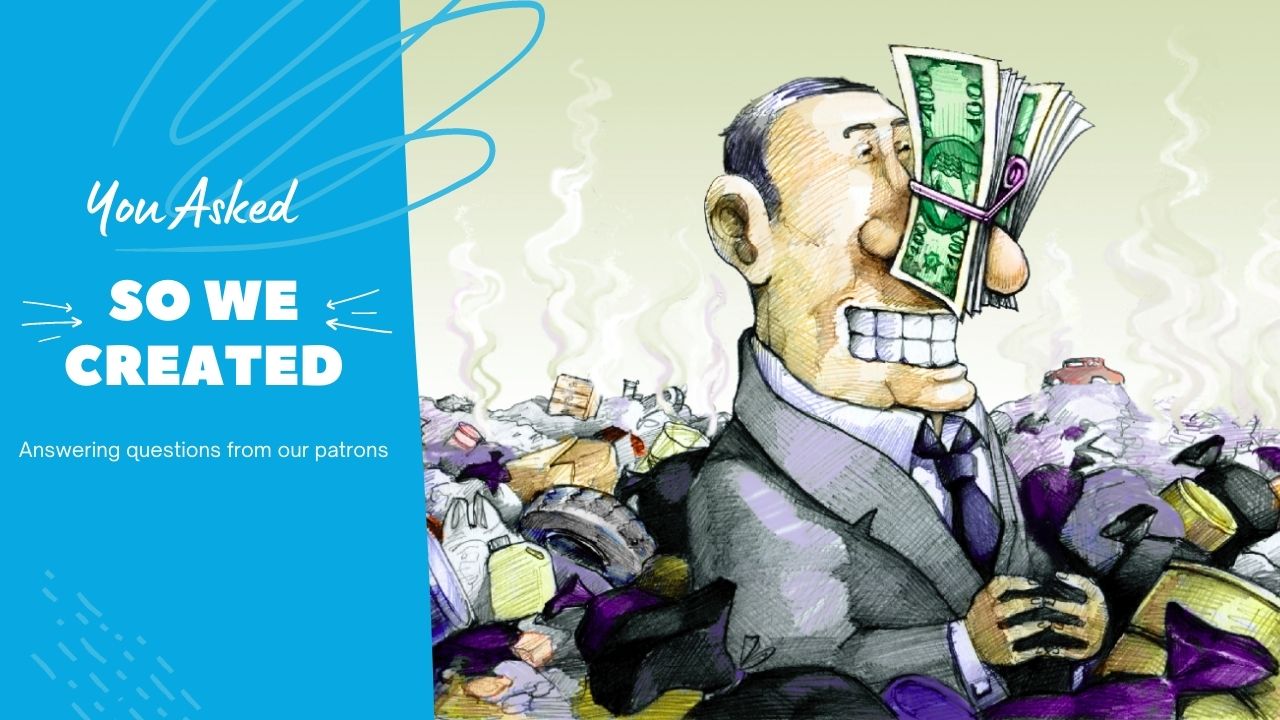“Judicial mafia” is a phrase often heard these days in connection with Ukraine’s judges and bodies of judicial self-governance. The phrase came about because questionable court decisions became the rule rather than the exception. Collaboration between certain forces and courts has a systematic rather than random nature, and those who are responsible for personnel decisions cover up for corrupt judges just as the mafia does for its own.
NGOs dealing with the judicial reform in Ukraine came up with a solution for the situation long ago: to replace and radically alter the principles of forming bodies of judicial self-governance. However, solutions are sabotaged and postponed at every occasion. While president Volodymyr Zelenskyy impedes his own promise to fix the situation, the so-called judicial mafia is given more control and influences more crucial issues for the country.
The problem of corrupt judges was raised in Ukraine in the transformation period just after the Euromaidan Revolution. Certain steps to remedy the situation were taken during ex-president Petro Poroshenko’s reform. For example, a qualification assessment of judges was introduced.
However, fundamental changes never came. Soon after the reform was launched, it became clear that the Office of the then-president hid loopholes to keep control over the judiciary. Moreover, covering up for corrupt judges became possible as the people responsible for personnel decisions had pronounced conflict of interests.
In particular, the High Qualification Commission of Judges (HQCJ), the body of judicial self-governance responsible for the qualification assessment of judges and their selection, and the High Council of Justice (HCJ), which makes final personal decisions regarding judges, were both by half composed of judges elected by judges.
The processes of qualification assessment showed how the conflict of interests worked. It was fast-paced as interviews of judges lasted some six minutes, the role of society was neglected, and eventually, a number of corrupt judges managed to keep their seats
While those in power were replaced in Ukraine, the problem of the bodies of judicial self-governance was worsening.
Judicial reform 2.0 and 3.0

The situation in the judiciary soon became the top topic on the political agenda and could not be ignored. Upon coming to power, Zelenskyy announced his judicial reform.
In November 2019, amendments to the law On the Judiciary and the Status of Judges initiated by the president came into force. It foresaw rebooting the HQCJ and cleaning out the HCJ. The old HQCJ was disbanded.
The HCJ should have formed a competition commission. Initially, the commission should have selected the new members of the HQCJ. Half of the commission would have consisted of HCJ members, another half of international experts nominated by international organizations. However, the HCJ used different instruments to restrict the role of international experts and eventually blocked the forming of the new HQCJ.
Moreover, in March 2020, just some months after Zelenskyy’s reform was launched, the Constitutional Court of Ukraine ruled in favor of the submission of the Supreme Court and recognized a number of provisions from the so-called package of Zelenskyy reform as unconstitutional.
In summer 2020, Zelenskyy came up with a new bill on the reform. Unlike the previous one, it did not contain provisions on cleaning up the HCJ. In October 2020, the Joint Opinion of the Venice Commission and the Directorate General of Human Rights and Rule of Law of the Council of Europe issued their opinion regarding the bill supporting the provisions on the forming the HQCJ with the participation of international experts but calling for reform of the HCJ.
At the end of 2020, the bill was changed focusing on reforming the bodies of judicial self-governance. However, during the New Year holidays in Ukraine, MPs rewrote the bill totally neglecting the role of the international experts and giving control over the formation of HQCJ to the unreformed HCJ.
The NGOs dealing with the reform came up with a statement calling on the MPs to stop faking judicial reform and finally implement their pre-election promises and international commitments on a quality reboot of the bodies of judicial self-governance.
The first parliamentary reading of the bill was scheduled for 4 February. Ultimately it did not take place: the day before, president Volodymyr Zelenskyy met with the Ambassadors of the G7 where he mentioned the issue of judicial reform and announced its presentation for 4 February.
"This is a large number of bills, successive steps that will lead to the purification of the judiciary in Ukraine. Tomorrow, after a meeting with me, with the Commission on Legal Reform, we will understand the deadlines for the implementation of all these steps and start preparing for the public presentation of judicial reform in Ukraine," Zelenskyy said.
No news on the presentation appeared on 4 February.
While the fate of the above-mentioned bill remains unknown, another significant step to give the HCJ more control was made. On 2 February, parliament supported in the first reading another bill, providing the HCJ with powers to complete the competitions of local courts judges. Previously, the competition was the responsibility of the HQCJ which now is disbanded.
How the court that should be disbanded controls the judiciary

If the HCJ influences the judiciary through personnel decisions, the Kyiv District Administrative Court (KDAC) is a sort of headquarters that produces decisions influencing the whole country.
KDAC is the court that:
- considers appeals for the actions of state bodies and local self-governance bodies;
- makes decisions on public service;
- approves appointments and dismissals of its own members;
- examines cases concerning the election process;
- and oversees other important judicial matters.
Only this court can consider cases regarding appeals of the government decisions, ministries, central bodies of the executive power, the National Bank, and other bodies.
It was to be liquidated during Poroshenko’s reform, yet managed to keep working until today.
The level of influence of the court, and in particular its head Pavlo Vovk, was uncovered last year. In 2020, the National Anti-Corruption Bureau, an investigative body in the area of top-corruption twice published tapes consisting of evidence of the court’s government seizing Ukraine’s judiciary.
In particular, the Bureau accuses Vovk of attempting to usurp judicial power and of unjust decisions in favor of political elites and businessmen.
According to the investigation, Vovk headed a criminal organization to seize state power. It was planned to do so by establishing control over the HQCJ and the HCJ. The investigation also revealed Vovk’s pressure on defiant judges and his support to loyalists.
Vovk has ignored the court hearings since autumn, claiming he is not a suspect, as the suspicion notice was allegedly not served to him in the proper way. The HCJ in its turn covered him, not providing permission for his arrest.
Only on 3 February, the High Anti-Corruption Court satisfied the request of the National Anti-Corruption Bureau detectives to forcibly bring Vovk to court.
The KDAC is also often referred to as Ukraine's “judicial mafia.” The consideration of the case in the Anti-Corruption Court will show whether it can be deprived of its influence.
The High Anti-Corruption Court claims being pressured

The High Anti-Corruption Court (HACC) started working in Ukraine on 5 September 2019. This was preceded by a long path which started from the discussions on whether the court is needed at all, to the bargaining on how it should be formed.
It were civil society organizations that observed how the cases of top-corruption stalled in ordinary courts and came up with the idea to create the court which would be responsible specifically for cases on top-corruption. It was also the NGOs that learned the lessons of the attempts of judiciary reform in the country and promoted the idea of participation of international experts in the process of selection of judges to the HACC.
Their participation in the process and public attention, including the international community made the process considerably more transparent than in ordinary circumstances. After a year of work, there have been no major claims of court judges lacking independence. In general, the court set a positive example for Ukraine’s judiciary showing how transparent procedures of judge selection and in particular the participation of the international experts can make a difference.
However, the HACC’s judges are being pressured by the HCJ. Recently at its meeting, they came up with a corresponding statement.
“The meeting of judges draws attention to a number of HCJ decisions which indicate attempts to bring judges to disciplinary responsibility for the legal position expressed in the court decisions, as well as cases that cause a significant public response,” the statement says.
The judges also pointed that such HCJ’s actions create serious obstacles for a prompt, full, and impartial investigation of criminal proceedings by law enforcement agencies and the implementation of court proceedings.
Judiciary reform and fight against corruption: links of one chain

The country’s advance in the fight against corruption also depends on the judiciary. At the end of January, Transparency International released its annual Corruption Perception Index (CPI) which relies upon surveys and assessments provided by reputable international organizations and think tanks. According to it, over the last year, Ukraine’s indicators increased by three points.
“Our rating in 2020 primarily grew thanks to the launch of the High Anti-Corruption Court and the reboot of the National Agency on Corruption Prevention. Ukraine’s positive results have also been influenced by the anti-corruption changes implemented during the ‘turbo mode’ of the Parliament of the IX convocation and the work of the previous government. However, the nature of CPI 2020 means it does not take into account the risks that manifested themselves in the last months of 2020 and may significantly set back our anti-corruption efforts,” Andrii Borovyk, Director of Transparency International Ukraine explained.
Transparency International Ukraine stresses that delays in the implementation of a full-fledged judicial reform are one of the components that may affect the CPI 2021. Among the other elements, there is pressure on anti-corruption institutions and interference in their work; attempts to disrupt and invalidate the achievements in the field of public procurement; and increases in the number of attacks on public activists, with lack of punishment for those responsible for the attacks.
At the conference devoted to presenting CPI 2020, Iryna Shyba, Executive Director of the DEJURE Foundation, stressed the role of the bodies of judicial self-governance in obstructing the fight against corruption.
“These bodies which manage judges through the selection procedures and dismissals have significant control over proceedings which are considered in courts. In fact, these bodies made it possible to create a ‘judicial mafia’ or ‘judicial corporation’ which provides services for those corrupts we are trying to fight. These services foresee making decisions which support the protection of their [corrupts’] assets, commandeering factories, and promoting their interests or Russian propaganda and agenda.”
The more real judicial reform is postponed, the more the chances of Ukraine slipping back from the path towards democracy increase.





